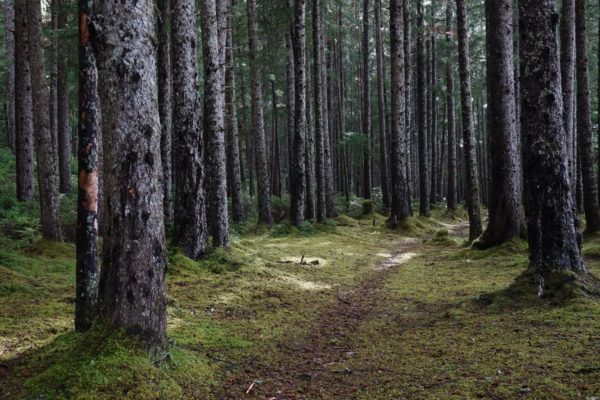
Democratic lawmakers in Congress have begun trying to reinstate the Roadless Rule for Alaska’s Tongass National Forest.
They’ve filed a bill that would reverse the Trump administration’s decision to exempt the country’s largest national forest from the 2001 rule restricting road-building and other development.
And with control of the U.S. Senate slated to change hands, bills filed in both chambers on Tuesday have better prospects than previous efforts.
The Roadless Area Conservation Act of 2021 mirrors past bills: It was introduced by U.S. Sen. Maria Cantwell (D-Washington) and Reps. Diana DeGette (D-Colorado) and Ruben Gallego (D-Arizona).
“The looming climate crisis has only increased the need to protect America’s last remaining wild forestlands, which reduce wildland fire risk and store huge amounts of carbon,” Sen. Cantwell said in a statement.
Alaska’s Congressional delegation and many state leaders hailed the Tongass exemption, finalized last October.
It could open up 185,000 acres of old growth forest in Southeast Alaska to logging.
But it’s proven controversial. Forest Service hearings in recent years showed the Clinton-era rule had strong support both in Alaska and the Lower 48.
A coalition of 10 conservation groups including Alaska Wilderness League, Alaska Audubon and Southeast Alaska Conservation Council released a statement on Tuesday supporting the bills.
“This legislation preserves roadless areas for hunting and fishing, activities that support a subsistence lifestyle and define a way of life for many people living in rural forested areas,” the groups wrote.
A coalition of conservationists and Southeast Alaska tribes filed a lawsuit last month to compel the U.S. Department of Agriculture to reinstate the Roadless Rule.
Absent legislative action or a court ruling that reinstates the Roadless Rule, an incoming presidential administration couldn’t easily reverse the exemption.
Jacob Resneck is CoastAlaska's regional news director in Juneau.




